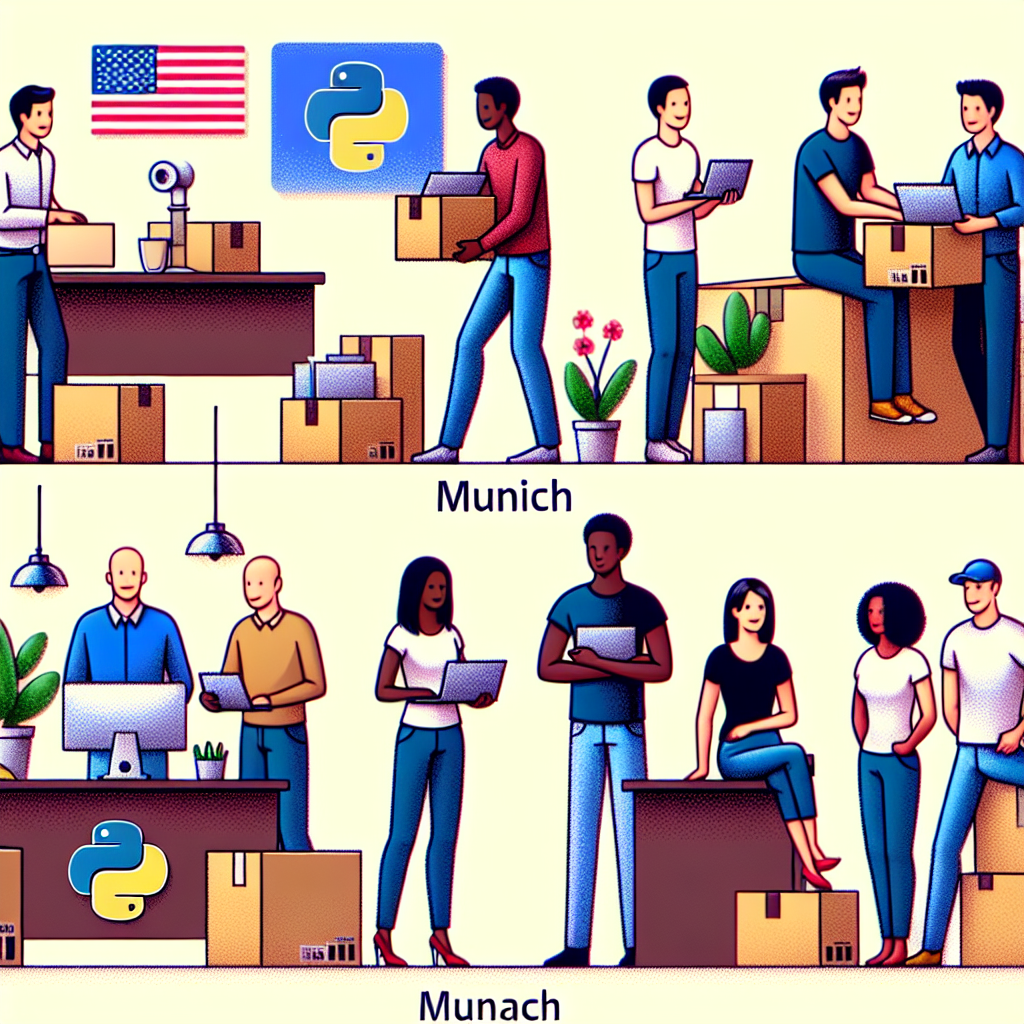-
Table of Contents
- Google Reportedly Disbands US Python Team, Forms New Unit in Munich
- Understanding the Shift
- Economic and Strategic Factors
- Impact on the Tech Industry
- Case Study: Google’s Global Operations
- Python’s Role in Google’s Ecosystem
- Reactions from the Tech Community
- Future Prospects
- Conclusion: Key Takeaways
Google Reportedly Disbands US Python Team, Forms New Unit in Munich

In a surprising move that has stirred the tech community, Google has reportedly disbanded its Python development team based in the United States and is forming a new unit in Munich, Germany. This strategic shift reflects broader trends in global tech development and raises questions about the future of software development in Silicon Valley.
Understanding the Shift
Google’s decision to move its Python team to Munich is not isolated. It comes at a time when many tech giants are reassessing their global footprint and talent distribution. The reasons behind this move are multifaceted, involving economic, technological, and strategic factors.
Economic and Strategic Factors
Several key factors have influenced Google’s decision to relocate its Python team:
- Cost Efficiency: Operating costs in different geographical areas can vary significantly. Labor and operational costs in Munich may offer Google a more cost-effective base compared to the US.
- Talent Acquisition: Munich is known for its strong educational institutions and tech-savvy workforce. By moving to Munich, Google taps into a pool of highly skilled developers who are particularly versed in advanced computing and software development.
- Strategic Positioning: Being in Munich allows Google to strengthen its presence in the European market. This strategic positioning is crucial as the tech market in Europe continues to grow.
Impact on the Tech Industry
The relocation of Google’s Python team to Munich is expected to have significant implications for the tech industry, both in the US and globally:
- Innovation Clusters: Munich might see a boost in its local tech ecosystem, potentially becoming a new hub for software development innovation.
- Job Market Dynamics: The move could lead to shifts in job opportunities, with potential job creation in Munich and a reevaluation of positions in the US.
- Competitive Landscape: Other tech companies may follow Google’s lead, resulting in a more distributed global tech landscape.
Case Study: Google’s Global Operations
Google has a history of strategic relocations and operational shifts that offer insights into this recent move. For instance, in 2018, Google opened a new AI research center in Beijing, China, despite the geopolitical tensions. This move was aimed at tapping into local AI talent and research capabilities, demonstrating Google’s global strategy of being present in key innovation hubs.
Python’s Role in Google’s Ecosystem
Python is a critical part of Google’s programming ecosystem. It is known for its simplicity and versatility, which makes it ideal for a range of applications from web development to artificial intelligence. The relocation of the Python team could signal a strategic emphasis on these areas, particularly with Munich’s growing reputation in AI and machine learning.
Reactions from the Tech Community
The decision has elicited mixed reactions from the tech community:
- Industry Experts: Some see this as a smart move that aligns with global tech trends, while others worry about the impact on the US tech scene.
- Python Developers: There is a sense of uncertainty among Python developers in the US about the implications for their careers and the overall development of the language.
- European Tech Professionals: Many in Europe view this as a positive development that will boost the local economy and tech industry.
Future Prospects
The establishment of a new Python team in Munich is likely just the beginning of a series of strategic moves by Google. This could include further investment in European tech sectors and possibly other shifts in their global operations strategy.
Conclusion: Key Takeaways
Google’s decision to disband its US-based Python team and form a new unit in Munich is a significant development with far-reaching implications. This move highlights the importance of global strategic positioning and cost management in today’s tech landscape. It also underscores the growing importance of Europe as a tech hub. As the situation evolves, it will be crucial to monitor how this affects the global tech ecosystem and the development of Python as a key tool in Google’s arsenal.
For tech professionals and industry observers, this development serves as a reminder of the ever-changing dynamics of the tech industry and the need for adaptability in the face of global shifts.

